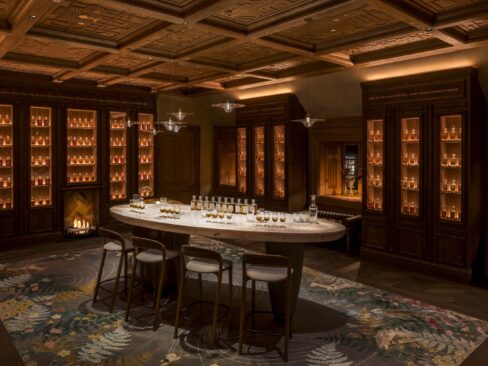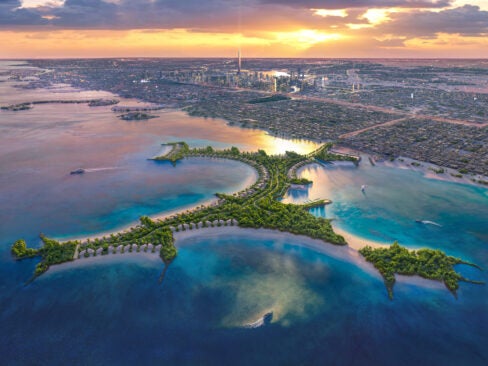By Tina Nielsen

This story originally appeared in the November/December 2016 issue of Elite Traveler.
Andalucía offers a feast for all the senses. Whether you have only the weekend to flamenco away, or can take longer to wander in the Iberian sunshine, Tina Nielsen highlights the cultural and sensual highlights of this heady Spanish realm.
Sitting at the southern-most point of Europe and facing North Africa, Andalucía is the interface between two continents. It is also where the Mediterranean Sea meets the Atlantic Ocean. Little wonder, then, that this stunning part of the Iberian Peninsula is an intriguing mix of cultures, evident in everything from the architecture and monuments to the food and cultural heritage.
The Moors’ rule of the region lasted 800 years before ending in the 15th century and evidence of this time is visible to visitors throughout the region. Castles, fortresses and monasteries bear witness to the mix of cultures experienced in Andalucían cities and villages.
The warm weather and many hours of sunshine make Andalucía one of the most popular year-round destinations in Europe and, while it has one of the finest coastlines in the country, a trip inland is always rewarding. Huge swathes of natural parks, mountains and olive groves sit alongside atmospheric whitewashed villages and important cities. Visit at the right time and it is possible to combine a visit to the ski resorts in the Sierra Nevada with a trip to the beaches, 60 miles away on the Costa Tropical.
 When people think of Málaga, thoughts often turn to the surrounding Costa del Sol. It’s true that travelers who head to the costas usually arrive via Málaga airport, but those who do make the trip into the city will find beautiful Moorish architecture, a vibrant restaurant scene, a gorgeous city beach and a cultural life to rival many other cities in Spain.
When people think of Málaga, thoughts often turn to the surrounding Costa del Sol. It’s true that travelers who head to the costas usually arrive via Málaga airport, but those who do make the trip into the city will find beautiful Moorish architecture, a vibrant restaurant scene, a gorgeous city beach and a cultural life to rival many other cities in Spain.
A population of over half a million people makes the city the sixth largest in Spain. One of the oldest cities in Europe, it has an eventful history and has been governed by different regimes over time. The Málaga administration has invested heavily in the cultural offerings in recent years and visitors can explore a rich mix of museums and galleries.
Check in to the new five-star Gran Hotel Miramar. The building, dating back to 1926, was originally constructed as a hotel and has since been used as a field hospital during the civil war and, more recently, as Málaga’s Palace of Justice until 2007. Restored to its former glory, the hotel has wonderful sea views and direct access to the beach.
After breakfast, get your bearings by walking to the Gibralfaro Castle in the hills and take in the splendid view overlooking the city. Next head to the Centre Pompidou – a key part of the city’s cultural reinvention – to explore the current selection of modern artworks from the Paris parent institution.
The modern pier along the harbor front has a vast selection of restaurants. The pick of the bunch for lunch is José Carlos García, the only restaurant in Málaga city to hold a Michelin star. In the afternoon, head to the Museo Picasso to learn about the life and art of Málaga’s favorite son. Pablo Picasso was born in the city and though he later moved to France, he always wanted his work to be on display in his hometown. The impressive collection spans eight decades of the artist’s work. Arrange to visit after-hours to enjoy the collection on your own. Alternatively, book one of the excellent guides to show you around.
The Spanish eat late, so there is time for a drink before dinner. Several bars around the cathedral have terraced seating with lovely views of the old building in the evening light. A short stroll away, find the modern tapas bar Taberna Uvedoble, which serves a selection of tapas so tempting that you’ll often find lines of people waiting to be seated.
After breakfast the next day, head west towards the upscale city of Marbella, which is a short drive from Málaga city, although there is a heliport near the coastal area if you prefer. Stay at Finca Cortesín, which offers faultless accommodation in a gorgeous location with beautiful views. Check in to one of the sumptuous villas within the grounds. Facilities include an Olympic-size swimming pool, golf course and beautiful grounds to wander around. Relax in the spa before lunch – Finca Cortesín is home to the one-Michelin-starred Kabuki Raw Japanese restaurant. Alternatively, enjoy a more traditional lunch in the El Jardín de Lutz restaurant.
In the evening, head to Marbella for a beachfront stroll – on a clear day the views can stretch to Africa. Don’t leave the area without dinner at Dani García, in the Puente Romano resort; local boy turned star chef García has gained much acclaim and two Michelin stars for his food and his tasting menu is unmissable.









